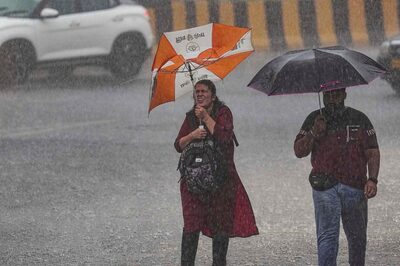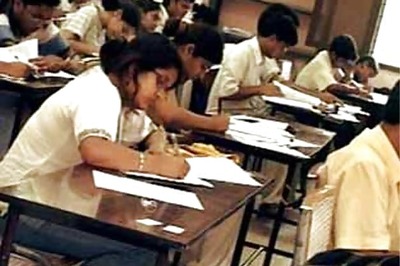
views
Abhijit Banerjee was awarded the Nobel Prize in economics for 2019 jointly with French-American Esther Duflo, his wife, and Michael Kremer of Harvard University for their "experimental approach to alleviating global poverty".
In an exclusive interview to News18, Banerjee, who is yet to receive his award, talked about how tourism, backed by handicrafts, can revive Kashmir’s economy, and how West Bengal needs to make a concerted effort to make things easier for setting up industries.
Edited excerpts:
What is your opinion on Article 370 in Kashmir, which has remained disturbed for a long time now? What should the government do immediately to revive its economy (the Valley’s economy has suffered losses worth crores in recent months) and make people self-sufficient?
Kashmir has immense potential when it comes to tourism and handicrafts, besides others. I do think that restoring normality in Kashmir is vital for its economy. In the short run, tourism has to be its strongest suit. And, when I am saying tourism, then it should come along with its many handicrafts, which also does better when tourism flourishes in the region.
Coming to West Bengal, issues like lack of industries, unemployment and migration of skilled workforce to other places has become a concern among general public, specially the youth. What is your advice for Bengal?
I do think we need a concerted effort to make it easier to set up industries. In our recent book, “What the economy needs now”, with Gita Gopinath, Raghuram Rajan and Mihir Sharma, we make the case for setting up production enclaves where land, transport and other infrastructure are available on a plug-in basis and perhaps, our very old-fashioned labour laws are replaced by a modern social security system which protects the worker in case of unemployment, while not putting the entire burden on his employer.
Bharatiya Mazdoor Sangh (BMS), the trade union affiliate of the ruling party BJP’s ideological mentor Rashtriya Swayamsevak Sangh (RSS), had recently called for a nationwide campaign to resist disinvestment plans of the Narendra Modi government. Do you agree that there should not be disinvestment of public sector undertakings (PSUs)?
I think many PSUs have no reason to be in the public sector. Why should Air India suck subsidies from the tax payer?
Why do you think the Indian banking sector is facing such a huge crisis and why it requires immediate attention to win people’s trust?
It (crisis) is deep rooted and requires immediate attention. We have argued that it is closely tied to the way public sector banks are regulated. The law says any default on a PSB loan is in principle an occasion for a CVC investigation. Therefore, bankers try as far as they can to avoid making loans that might go bad.
In other words, they avoid being creative and trying to identify the best new borrowers. Lending to new clients always involves some risk. Old borrowers are safer because the loan officers can say that they are just continuing what someone else started (and therefore they cannot be blamed so much) and the result is that many old borrowers keep getting loans even when they should not.
The worst case scenario is when these firms, which often have very large loans as a result of loan growth over the years, want to default. They put pressure on the loan officer to bail them out by giving them a loan to repay the old loan — this is called ever-greening. The loan officer does it because he still wants to avoid a default. So the pile of debt keeps growing till the firm really collapses. I wonder how many of these we are seeing now. It would explain why the pattern is that everything is fine till collapses suddenly.
The way to avoid this is to protect loan officers from being blamed for genuine mistakes. Selling part of the equity in the banks till the government is no longer a majority shareholder can help and it can also generate funds to bail out the banks.
Can you tell us something more about your wife Esther Duflo and the best thing you like about her?
She is hardworking and very optimistic. She is always excited about new things. She is very disciplined, calm and composed. She has many admirable qualities which makes her different. She likes Bengali food too. She is extremely generous to everyone around her. For example, she will spend infinite time playing with kids, our own or not, who happens to be at a loose end. She is also deeply positive about the future of the world and tries to avoid being negative if it is at all possible.
Are you willing to work in some of the projects with the Indian as well as with the West Bengal government? Or you already are working in some projects?
I have several on-going Indian projects, including one with Haqdarshak in Rajasthan. I am also working on a project in Indonesia and trying to help low-income citizens get better access to the benefits they are entitled to. If future, I will certainly associate myself with some of the projects in Bengal.
Rabindra Nath Tagore’s Nobel theft was noticed on March 25, 2004, at the Uttarayan complex of Visva Bharati University. What safety measures would you undertake for the safety of your Nobel?
Let me get it first.


















Comments
0 comment